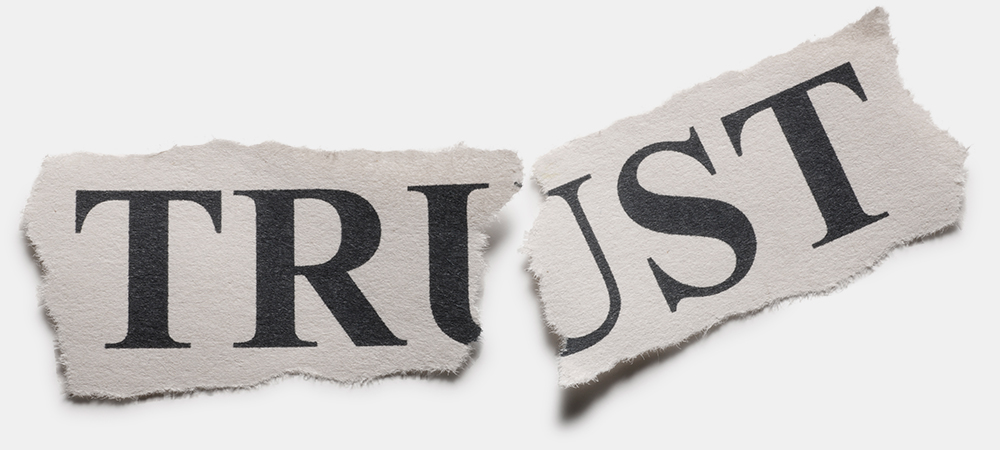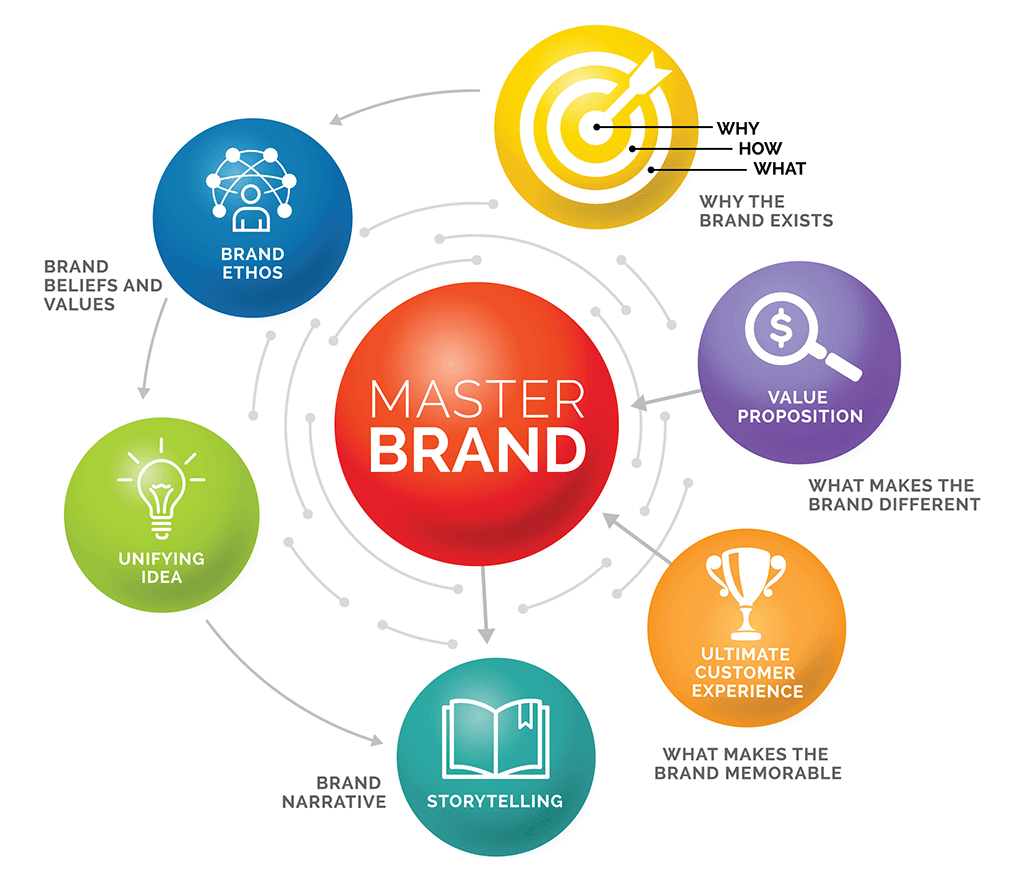How to Build Brand Belief in an Age of Zero Trust
Public trust in business as a force for good in society is at an all-time low. To convince people otherwise, consumer brands must prove they are committed to making the world a better place.

“It is the act of a bully”.
Those were the scathing words of Ontario’s premier Kathleen Wynne, referring to a couple of wealthy Tim Horton’s franchise owners who had clawed back benefits to employees in response to a hike in the province’s minimum wage. The petulant actions of these two owners, both scions of the company’s founders, sparked a furious outcry, leading to protestors rallying outside Tim Hortons locations chanting: “Hold the sugar, hold the cream, Tim Hortons don’t be mean”.
Ordinarily people respond to news of corporate greed with a shrug of the shoulders. After all, most Canadians believe that CEOs are driven more by greed than a desire to make a positive difference in the world (according to the 2018 Edelman Trust Barometer). But in this case the corporate villain was Tim Hortons: A brand so beloved that the term “double-double” has become a Canadian idiom – so ubiquitous that in many towns it serves as a local hang-out – so popular that its “roll up the rim” contest is a country-wide obsession. Ever since it was founded in 1964 the company has embodied Main Street values, taking care to invest in local communities and showing pride through its commercials in our compassion and tolerance as a nation.
Three years ago, the Brazilian private equity firm 3G Capital, notorious for radical cost-cutting, acquired Tim Hortons in a massive $12.5 billion takeover. Its standard business strategy: to take over popular food and beverage brands and strip them bare while counting on residual goodwill to preserve market share. And that is exactly how 3G Capital has run the Tim Hortons business: callously firing the entire management team in favour of young, ambitious “kapos” willing to work for low pay in return for big performance bonuses; slashing costs wherever it can; jacking up the prices to franchise owners; and scaling back the investment in brand-building. In short, the Dickensian side of capitalism, which goes a long way toward explaining why there is so little trust in business to do the right thing.
Angry at their profit margins being squeezed, the franchise owners have rebelled, banding together to launch court challenges. When the Head Office refused to raise menu prices to offset the increase in the minimum wage, some responded by insensitively revoking staff benefits. In response to the public backlash, the Head Office claimed these rogue owners did not represent the “values of the company”. Certainly not the old values, that is clear, but they did reflect the new “greed is good” values. And if the company persists in acting contrary to the image people have of Tim Hortons, as this homey coffee shop which is part of the national consciousness, they are at risk of devaluing the made-in-Canada appeal of the brand. At that point Tim Hortons becomes just another quick serve restaurant, no more meaningful to Canadians than any other global brand.
Sustainable Living Brands
Last year 3G Capital tried unsuccessfully to devour one of the biggest consumer products companies in the world: the Anglo-Dutch manufacturing giant Unilever, best known for such brands as Dove, Ben & Jerry’s and Vaseline. After the deal was summarily rejected by the Unilever board, its chief executive Paul Polman referred to it as a “near-death experience”.
Just recently Unilever announced it was shutting down its London office and consolidating its headquarters in Rotterdam, a move quite possibly related to the fright it got from 3G’s menacing advances. Unlike British law, which puts the interests of shareholders above all else, the Dutch favour an equilibrium between social and fiduciary responsibility. And that ethos aligns with Unilever’s belief in the idea of “sustainable brands”. As Paul Polman has said, “Graveyards are full of companies that have been cutting costs but not ultimately filled their purpose to do anything useful for society.”
For Unilever, a sustainable brand is one which improves the health, nutrition and wellbeing of a person, while also reducing the environmental impact. As Keith Weed, the chief marketing officer, explains, “People want to engage with brands that understand them and speak to their concerns. Having a sustainable living purpose enables brands to connect with them at a deeper, emotional level”. The goal is to serve as a catalyst for human progress by associating brands with a specific societal need. Today almost half of Unilever’s brands are deemed to be “sustainable”. And Unilever claims those brands grew 50% faster than the rest of its business while accounting for 60% of its growth.
A classic example of a sustainable living brand is Dove soap which adopted as its social mission the principle that beauty should be “a source of confidence and not anxiety”. Over the years its many award-winning campaigns portraying women as they are in real life have provoked wide awareness and discussion of female stereotyping, positioning the brand around women’s struggle with self-esteem. Many of the other Unilever brands are just as committed to their own social concerns, whether that’s responsible farming (Hellmann’s), climate change (Ben & Jerry’s) or childhood outdoor learning and play (DiG).
Do the Kind Thing
Even a simple nutrition bar can have a social mission. Take the example of KIND Healthy Snacks, which calls itself a “not only for profit” company. KIND was founded in 2004 and has seen hockey-stick growth over the past few years, benefiting from the shift in consumer taste toward healthier snacks. The Mexican-born CEO and founder, Daniel Lubetzky, has said, “As a business owner, I understand the importance of prioritizing your bottom line, but it’s equally as important to consider how you can succeed while also thinking about the long-term impact on the community.”
The main expression of its social mission is a philanthropic foundation called the KIND Movement, which celebrates people who show exemplary acts of kindness and are positively transforming their communities. The company has also developed a free online learning tool called Empatico which connects classrooms worldwide so that students can discover what life is like for their peers around the world. And recently it started a muckraking advocacy group called Feed the Truth, which seeks to improve public health by exposing special interests in the processed food industry who have an undue influence over government nutrition policy.
What KIND has succeeded in doing, aside from making an exceptionally tasty and nutritious product, is ignite a conversation in society around a substantive topic: how we treat each other as human beings. As Daniel Lubetzky explains, “For years, KIND has explored how difficult it is to step out of one’s comfort zone and practice kindness – especially towards someone with whom you disagree. Now, more than ever, that extra effort is required to rediscover our shared humanity and tackle challenges related to misunderstanding and intolerance.”
Authenticity is at the heart of brand-building today.
KIND is an ideal example of what it will take for brands to win over people in an age of zero trust. It is genuine in its beliefs. Its mission transcends profits. And it acts with integrity. “We found a way that seems authentic to honor kindness, to inspire kindness, and to get more people to try the product,” says Lubetzky.
A relatable Identity
Authenticity is at the heart of brand-building today. For a brand to be truly authentic, it must abide by a people-first code of conduct; treat customers (and employees!) as stakeholders; be empathetic, honest, and transparent; and always act in the best interest of society, even when it affects profitability. According to a recent global research report by the communications agency Cohn & Wolfe, Canadians regard “authenticity” as a crucial factor in choosing a brand, more important even than product utility. The top-ranked authentic brand in Canada? Ironically, Tim Hortons, still viewed (for the time being) as synonymous with Canadian values. However, Tim Hortons may already be paying a price for all the negative press it has received. In a recent ranking of the companies most admired by Canadians, Tim Hortons dropped from 4th place to 50th, suggesting the brand may be in serious trouble.

Building a trust-worthy brand is not a public relations exercise. It demands a frank appraisal of how selflessly a company conducts business and its treatment of customers, employees and suppliers. It demands the acceptance of a corporate ethos wrapped in altruism. It demands the creation of a relatable identity based on a shared worldview. And it demands an investment in the betterment of society which makes the brand a credible voice for change.
The process starts by asking why the brand exists beyond making a profit – how it makes the world a better place. Once that purpose statement is crafted, it needs to be activated through a mix of open conversation, investment in community-building and social collaboration. Think of Unilever’s Dove campaigns – or KIND’s efforts to promote being kind to people – or Tim Hortons kids’ hockey sponsorships.
The final step is designing a signature customer experience which extends the brand’s reach beyond the shelf. That experience should enhance the lives of people: make it easier, more fulfilling, more connected, more informed, more interesting, or simply more joyful. Above all, the experience should make people feel good, about themselves, their neighbours and the world.Out of this process will emerge a new, more relatable brand identity – one in which people feel confident placing their trust. Because trust is what long-term relationships are built upon.